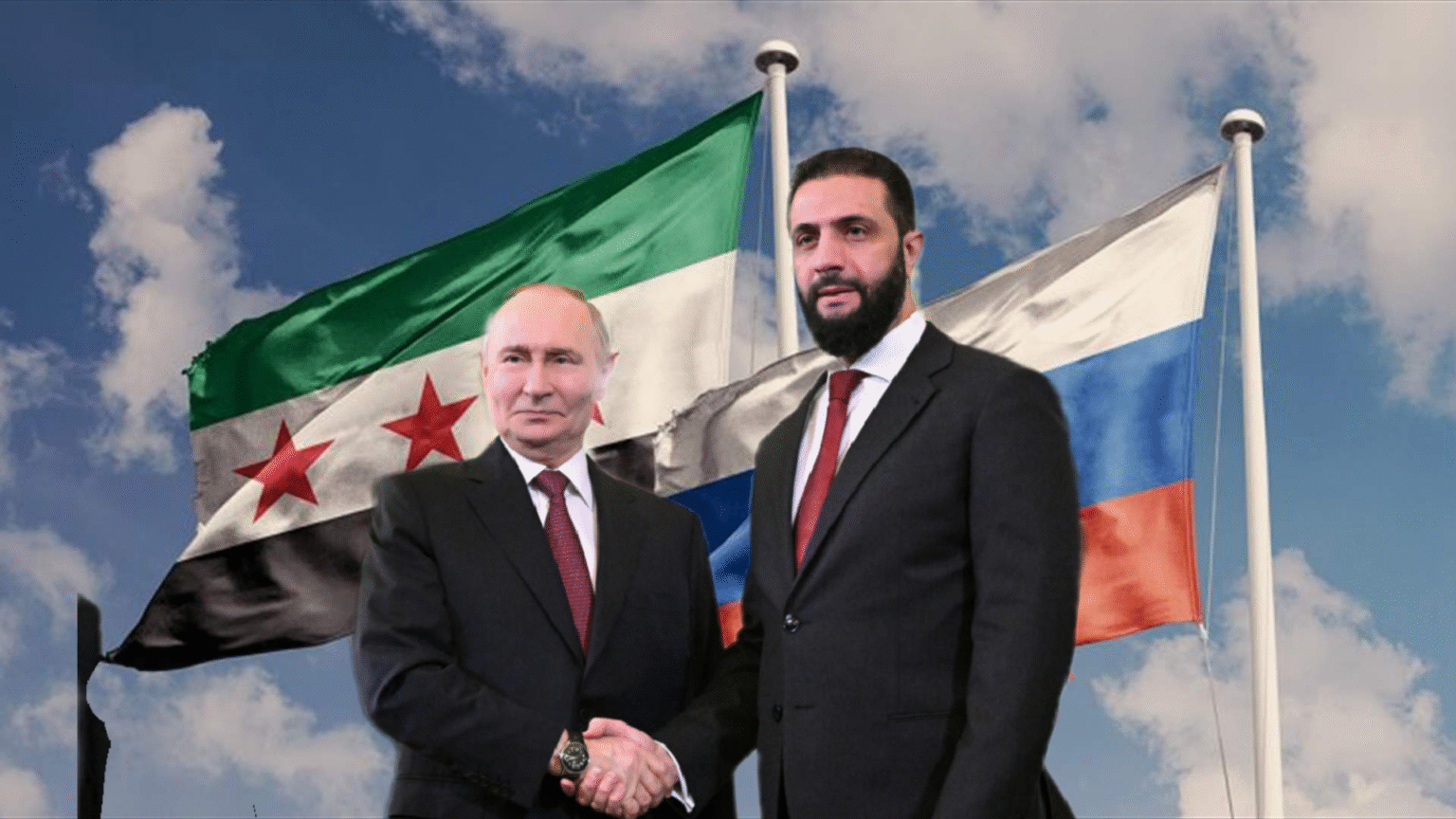Steven Sahiounie, journalist and political commentator
Russia is a potential counterweight to Israel, which has invaded parts of southern Syria after the fall of Assad, and has carried out over 1,000 airstrikes and 400 ground incursions across the country. Syria sees the good relationship between Moscow and Tel Aviv as potentially solving some of its issues in the south of Syria.
Moscow is signaling a potential redeployment of military forces to southern Syria, a strategic maneuver being actively discussed with both the government in Damascus and with Tel Aviv. The initiative, first floated in Russian media, aims to re-establish Russia as the key arbiter of stability on the volatile border with Israel, secure its long-term strategic assets in the Mediterranean, and counter emerging geopolitical threats.
The discussions gained public traction on August 11, 2025, when the Russian newspaper Kommersant reported that Syrian authorities are showing significant “interest” in resuming Russian military police patrols in the southern governorates.
On October 15, Syrian President Ahmad al-Sharaa met with Russian President Vladimir Putin in Moscow. Al-Sharaa said he sought to reestablish diplomatic relations with all countries, “chiefly with Russia.” Putin also spoke of the “special relationship” built over 80 years between Syria and Russia.
After the fall of Assad in December 2024, a high-ranking Russian diplomatic mission visited the new government in Damascus in January, with several phones calls between Putin and al-Sharaa in February, aimed at maintaining a military and political presence in Syria.
Arms exports from the Soviet Union to Syria started in 1975, with a Treaty of Friendship and Cooperation signed by the two parties in 1980. Al-Sharaa confirmed his government will uphold past agreements with Russia, which hints that the two bases in Syria, Tartus and Hmeimim, will remain functioning.
Syria will be looking to re-arm its newly formed army, in the wake of Israeli bombings which destroyed almost all of the military capabilities. Some analysts have proposed Russia could play a role in training the new army.
Russia could also play a role in the UNSC to support Syria politically. There are shared interests between Syria and Russia, such as the future rebuilding of the war-torn country and energy needs. Syria gets crude oil for its electrical grid, now hitting 12 million barrels in 2025, from Russia. In April, wheat arrived in Syria from Russia.
A Convergence of Interests
This potential redeployment is the direct outcome of a high-level Syrian delegation’s visit to Moscow on July 31, 2025. The delegation, led by Foreign Minister Asaad al-Shaibani and Defense Minister Murhaf Abu Qasra, culminated in a critical meeting with President Putin.
For the government in Damascus, a Russian presence in the south would reduce the pretext for Israeli military operations, and potentially facilitate a political settlement that includes the disarmament of local factions in Suwayda.
The ‘Third Base’: A Flexible Footprint
While the prospect of a new Russian military footprint in the south is clear, analysts note the discussion is not focused on establishing a new, full-scale base; instead, the proposal centers on the resumption of military police patrols military base. A permanent, heavy footprint would be politically complex. and “separation forces.” This model offers a more flexible and politically palatable presence, allowing Russia to project power and mediate conflicts without the complications of a formal “third base.”
Russia would, by all indications, consider such a proposal. A renewed presence in the south achieves several of Moscow’s key Interests simultaneously. It solidifies Russia’s role as an indispensable partner to the Syrian government, providing critical leverage for securing the long-term-leases for Tartus and Hmeimim.
It re-establishes Russia as the primary regional “stabilizer,” and the only power capable of balancing the interests of Syria, Israel, and Turkey.
It serves as a direct check against expanding Turkish influence and, crucially, blocks potential Israeli strategic projects.
A New Regional Calculus
Today, analysts suggest Israel is interested in a continued Russian presence as a crucial counterweight to expanding Turkish influence.
This calculus relies heavily on the “special relationship” between President Putin and Israeli Prime Minister Benjamin Netanyahu, with the two holding phone calls on July 28 and August 4 to discuss the Syrian situation.
Russian deployment would not be a direct military challenge to Israel, but rather a “defense through stabilization and deterrence.” Russia would manage the border through its unique line of communication with Tel Aviv, while simultaneously deterring any “creeping occupation” by Israel.
Significantly, other key players may not object. Turkey, which mediated the Syrian delegation’s visit to Moscow, reportedly does not oppose Russian influence in the south. Both Ankara and Washington may even encourage a Russian military buffer force to ensure stability and prevent a vacuum.
The Russian Reconciliation Center was founded in 2016 seeking peaceful negotiations between armed opposition fighters and the Syrian government. Many successful deals were carried out, which returned communities to peace, while transporting armed fighters, their families and willing civilians to Idlib, where they could live outside of Syrian government control.
Many of the residents in Idlib arrived on the green buses used in the negotiation process. They owe their lives to the Russian negotiators who made a safe exit from a war-zone possible. These include the fighters who brought down Assad under the command of al-Sharaa.
For now, Russia appears focused on consolidating its gains in Syria. In a clear demonstration of this renewed engagement, Russian forces have become visibly active, with a military convoy moving east from Qamishli on August 7 and reports of Russia reinforcing its presence at Qamishli airport on August 11. Moscow is playing a high-stakes game, using the sensitive south as a chessboard to secure its great power status in the Mediterranean.
Steven Sahiounie is a two-time award-winning journalist.



